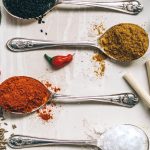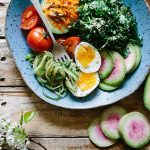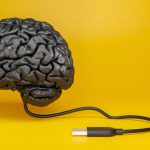We’ve all heard the saying “you are what you eat,” but have you ever wondered why this saying is so popular?
This phrase emerged in the 1920-30s by a nutritionist called Victor Lindlahr. He was a strong believer in the idea that food controls health. The food that we put into our mouth is digested in our stomachs and broken down into a number of molecules. These molecules include proteins, carbs, fats, as well as vitamins and minerals. Our body then decides what it needs from the food that has been given to it, and takes these specific molecules into the bloodstream. The blood carries the nutrients all around the body like a river, delivering them to the various organs and muscles. All these cells combined form our bodies and what we are.
So Many Diets, So Little Time
When I talk about a diet, I’m not necessarily talking about restricting yourself from eating what you like, or suffering for a month or two to look good in a bikini. The question that a diet addresses is what food should we put into our mouths to get the nourishment that our internal systems need? To me a diet is what you eat every day. Whether it is fruit and veg or chips and frozen dinners, it is a diet!
There are many different diets and theories on what to eat. How can you know which diet is appropriate for you? In my view, the concept of bio-individuality is very important when considering a diet. The same diet will not work for everyone. That’s why you see some people who go on Atkins, Paleo, Mediterranean, Raw Food or other diets and have amazing results.
However, it is also true that other people who try these same diets have no results or sometimes even the opposite of a desired goal. Our bodies are very complicated mechanisms and the truth is the area of nutritional science is still developing and we do not know everything about it.
Four Dietary Elements To Consider
1. Types Of Food: The Beauty Of A Food Journal
One of the most important things you can do for yourself in the area of diet is to start paying attention to how you feel after you eat different foods. Notice how you feel right after you eat and how you feel two hours later – it might change. For example, if I eat an ice cream I feel really good while I eat it and right afterwards I want more! I get a boost of energy and feel like jumping around. However, two hours later I feel hungry, depleted and lethargic.
Different types of food have different effects on us and the effects can vary between people. Listen to your body to find out what works for you. Start a food journal and jot a few things down everyday. You will never need to follow another diet again, once you figure out what is right for your body!
2. Timing Of Eating: Try, Evaluate, Adjust
In our busy lives it is easy to get off schedule. One day you may have a nice warm lunch with a colleague at a restaurant near the office at noon, the next day it might be a sandwich at 2PM at your desk. When it comes to food, it is important to establish a regime. Our bodies like stability and consistency. Try having meals at a regular time for a week and notice how it makes you feel. Does it help you achieve your goal of having more energy, or feeling lighter?
If you feel like that does not give you enough nourishment, you can add a few snacks during the days. Conversely, you might take some food out if you’re feeling lazy and stagnant. Give it a go for at least a week, or you might not be able to notice the results. Re-evaluate the next week to see if you need to make any further adjustments.
3. Amount Of Food: The Yin And Yang Of Nutrition
The biggest mistake I see is when people eliminate food they love for a few weeks, only to return to their old habits and ruin any progress they made. These short-term elimination diets only exhaust your body, while the best diets make a shift in your lifestyle. When you decide to make changes to your diet, you make a commitment towards a healthier lifestyle. There’s nothing wrong with having a croissant on occasion (even if you know that it will make you feel empty and depleted in a couple of hours) as long as you can control the amount and frequency of these foods. Once you find the balance on this, you can allow yourself to indulge sometimes.
My personal diet consists of mainly veg and fruit, whole grains, fish, poultry, and sometimes red meat. I eat fresh, unprocessed foods and avoid anything that comes precooked in a package. Sometimes I’m guilty of eating a whole baguette on my own, accompanied by several generous portions of cheese, while gulping on a delicious glass of wine; that’s all part of my natural balance. If you think about the yin and yang sign of Chinese Medicine, there is always a spot of yang in the yin and the other way around. Allowing a cheat day once in a while allows you to stay with your healthier choices without becoming bored with it.
4. Quality Of Food: Because You’re Worth It
Now we come full circle: the food we eat becomes our blood and eventually transforms into our cells. The food we eat is what we are. Based on this, there are a number of arguments for eating organic and/or local food. It provides clear nutrition to your cells, with no pesticides or poison. It also helps the local farmers in the community and the environment.
On an energetic level, food that was grown in a chemical-free environment and had a ‘good life’ so to speak (free-range, grass-fed meat, or organically grown vegetables) will be charged with stronger nutrients and have more vitality than those treated with chemicals. Local food which grew in the same environment we live in will have the nutrients and energetic value we need in order to feel our best. Yes, chemical-free foods are often more expensive, but it’s important to stop and ask yourself: “Am I not worth it?”
Over To You
Victor Lindlahr was looking at food as the building blocks of who we are at the start of the last century. Chinese medicine was developed in the second century BC, and has a lot of the same principles. There is a wealth of information out there just waiting to be discovered. The question now is, when will be the right time for you to start looking at how food impacts the way you feel? Please feel free to share any questions, opinions or discoveries in the comments below! This article is part two of a series I’m writing exploring the different meanings of health. Do check back soon for part three!













